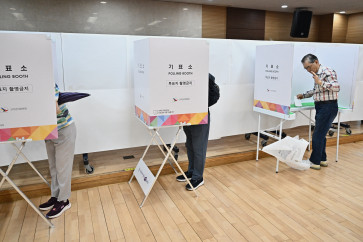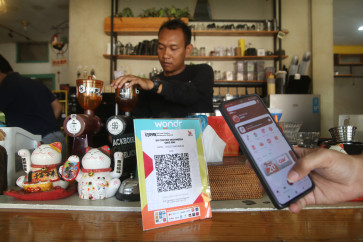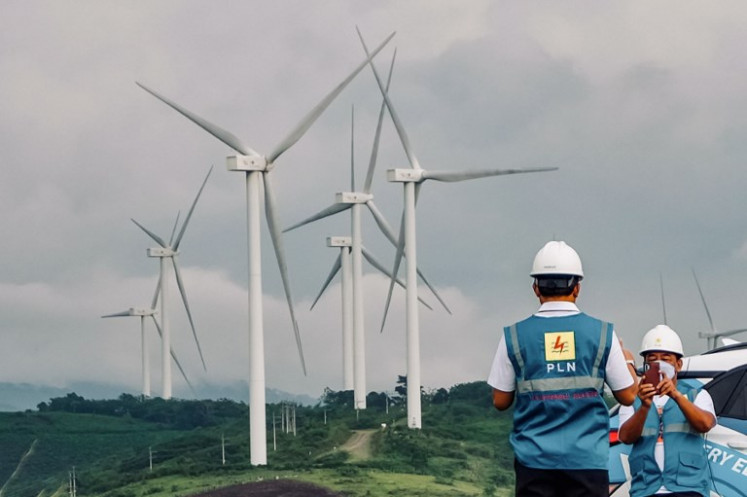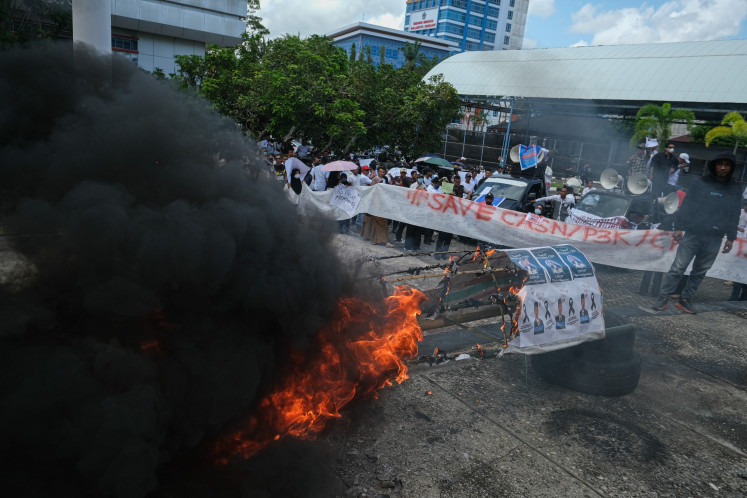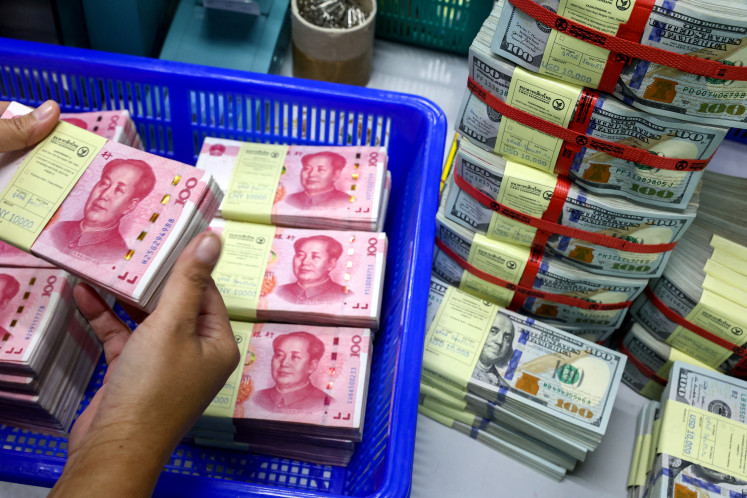Hopes high of keeping WTO afloat
Hot seats: A view of the main meeting hall on Monday, where the opening ceremony for the World Trade Organizationâs (WTO) ninth Ministerial Conference will be held, in Nusa Dua, Bali
Change text size
Gift Premium Articles
to Anyone

H
span class="caption">Hot seats: A view of the main meeting hall on Monday, where the opening ceremony for the World Trade Organization's (WTO) ninth Ministerial Conference will be held, in Nusa Dua, Bali. The four-day meeting will commence on Tuesday. JP/Zul T. Edoardo
The stakes are high at the ninth World Trade Organization (WTO) Ministerial Meeting in Nusa Dua, Bali, as the failure of the meeting could spur a rapid proliferation of trade negotiations that could eventually hit smaller economies.
Agricultural subsidies, among other issues, have kept developed and developing countries in a tug-of-war.
Developing countries, grouped under the G33, argue that agricultural subsidies and public stockpiles are important to ensure their food security programs and their farmers' welfare.
But developed countries, which once consumed developing countries' agricultural products before wider agricultural industrialization, have proposed a maximum of four years for their smaller peers to run their food security programs without breaching a 10 percent limit on their agricultural output.
'I think the risk [of failing at the WTO meeting] is too great for all of us, who have seen tendencies
toward regionalism, bilateralism and multilateralism,' Trade Minister Gita Wirjawan said on Monday in a press conference ahead of the four-day meeting, which begins on Tuesday.
WTO director general Roberto Azevedo shared similar concerns, saying the 159-member body may retain some of its functions despite growing regionalism ' although they would not be the same ' if the Bali meeting failed.
'Our role in negotiating new agreements is likely to be seriously impaired,' he told The Jakarta Post in an email interview.
'Other negotiating forums will become more attractive, such as regional and bilateral mechanisms. Many delegations have expressed deep concern about this ' as the poorest nations are often left on the outside.'
The WTO negotiations between developed and developing countries over tariff reductions for agricultural and industrial goods have remained at an impasse since the Doha Round of negotiations in 2001. This has eroded confidence in the WTO's capacities to foster negotiation for multilateral trade policies.
The deadlock will trigger a rise in bilateral and regional trade agreements that are feared might turn into a veritable spaghetti bowl of conflicting trade rules.
Both Gita and Azevedo maintained their optimism, however, for the Bali meeting.
Nevertheless, analysts have expressed their doubts that the Bali meeting would result in a balanced outcome for both developing and developed countries, while citing bilateral and multilateral agreements as alternatives to the WTO, which is losing its power.
'If the Bali meeting fails, the likelihood that the WTO can improve its liberalization package will decrease. More countries will engage in regional and multilateral FTAs [free trade agreements],' Titik Anas, a senior researcher at the Centre for Strategic and International Studies (CSIS), said on Monday.
Nevertheless, countries that did not participate in any particular FTA would be at disadvantage compared to those engaged in one, whether or not the Bali meeting failed, she added.
'That's why we have seen more FTAs signed in recent years,' she said.
University of Indonesia (UI) international trade expert Mahmud Syaltout said developed nations now tended to seek alternative forums to the WTO through world or regional blocs, like the G20 and the Asia-Pacific Economic Cooperation (APEC) forum, as well as discussing the Trans-Pacific Partnership Agreement (TPP), to contain the power of emerging economies.
'It used to be developing nations that sought alternative avenues. But that has changed now,' he told the Post in Jakarta.
'For example, the United States is taking on the TPP to balance China. And the recent APEC meeting served as a way out, which was apparently controlled by developed nations.'
The US-led TPP has so far engaged Brunei, Japan, Malaysia, Singapore and Vietnam, among others, with Indonesia also expected to join. The TPP is designed for a high degree of liberalization, comprising areas outside regular FTAs.
However, Ricardo Meléndez-Ortiz, chief executive of the International Center for Trade and Sustainable Development (ICTSD), said the WTO would remain, whether or not the Bali meeting failed, because it was WTO policies that allowed for the creation of regional agreements.
'If there is no agreement in Bali this week, the system and mechanisms will continue to exist. What they're trying to do in Bali is go a bit further, to move beyond what they already have,' he said in Denpasar on Monday.
The ministerial meeting will also witness the accession of Yemen into the world body.
' Tassia Sipahutar contributes to the report

